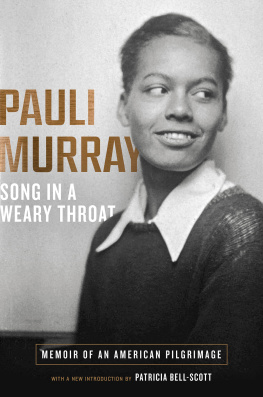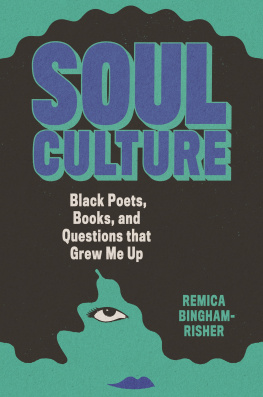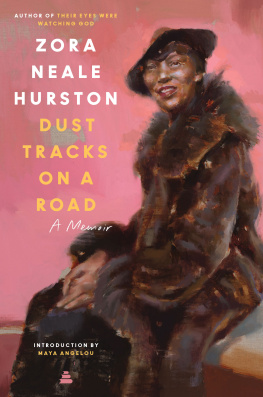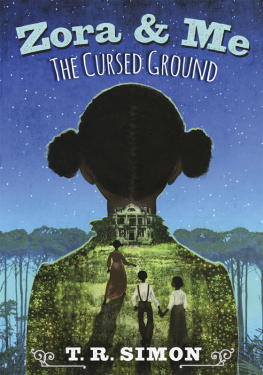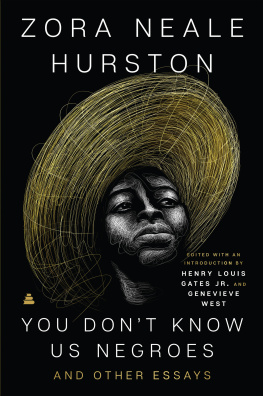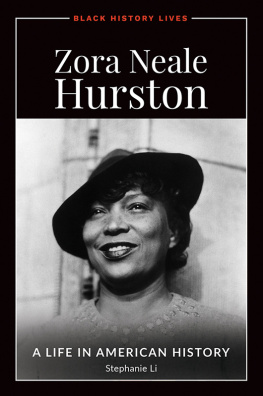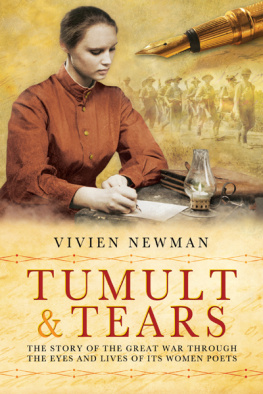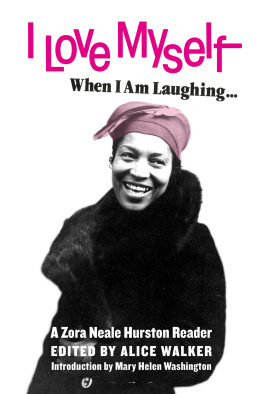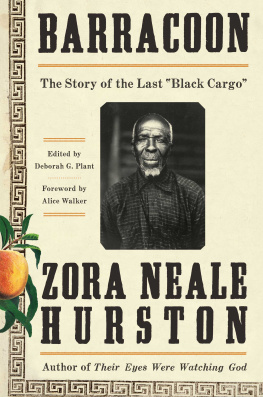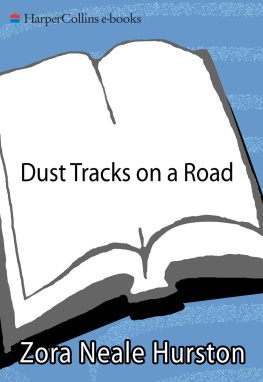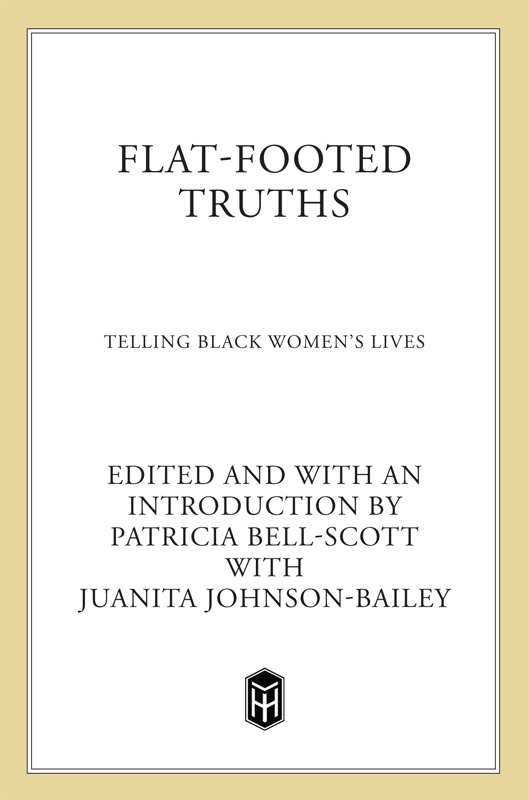
The author and publisher have provided this e-book to you for your personal use only. You may not make this e-book publicly available in any way. Copyright infringement is against the law. If you believe the copy of this e-book you are reading infringes on the authors copyright, please notify the publisher at: us.macmillanusa.com/piracy.
CONTENTS
We can simply refuse to leave our children unarmed with the truth as we have experienced it. Love is best expressed through truth.
Alice Walker
ACKNOWLEDGMENTS
This book exists in large part because of the unwavering commitment of Charlotte Sheedy; the patience and encouragement of Tracy A. Sherrod; the mother/sister love of Dorothy Wilbanks, Brenda F. Bell, and Georgia M. Johnson; the wisdom and inspiration of Sapphire; the spiritual writings of Alice Walker and Ana Castillo; the research and clerical assistance of Angela Humphrey Brown, April Few, and Chelita Edwards; and the support of Arvin Scott, Marvin Bailey, and Brandice E. A. Bailey. We also thank Maya Angelou, whose I Know Why the Caged Bird Sings gives so many the courage to speak.
FOREWORD
marcia ann gillespie
How do we tell our life stories? Do we begin in the here and now? Where do our stories begin and those of our foremothers end? A church song Ive always loved proclaims, My soul looks back in wonder, how I got over. When I try to make sense of this life of mine and my times, I remember the stories told to me of Lavinia Risen, my maternal great-grandmother. As a child I fell in love with her, partly because I knew that I looked like her.
From early childhood I peppered my grandmother with questions about her mother, a woman born in slavery, who came into womanhood as someones chattel. So many of my questions remained unanswered or only partly answered, and the answers never satisfied me even when I was a child. Then as now I wanted tono, hungered to know Lavinia Risens life story. I wanted to know her, what shed experienced and endured, her pleasures and pains in slavery and in freedom. I savored the few details that my grandmother sharedmore as I grew older, but never enough. I know that she was a slave on a plantation in Ashland, Virginia, that she bore several children while still held in bondage, that they were the children of the overseer or maybe the plantation owner. That when slavery ended she left that place with her babies and made her way to Richmond, Virginia. That Lavinia Risen became Lavinia Temple when she married my great-grandfather. That together they had many more children. That he was a butcher and they were relatively prosperous, but the marriage soured and she gathered her childrenall of the younger ones and all of the older ones who chose to go with herand moved north to Long Branch, New Jersey, where she leased a farm. That while in Long Branch she beat a White man into the ground after he had assaulted one of her children and that she taught my great-uncle Larry Young, who would become a somewhat successful prizefighter at the turn of the century, how to box. But even as a three-braided little colored girl, I knew when I first heard of her that I had no more than a sketchy outline of her lifethat there was so much more.
I try to imagine what she must have been like. I long to know her thoughts and hopes and dreams. How she got over. But there are no journals, no diaries, no letters. She never learned to read or write more than her name. I have only the fragmented memories that my now long-dead grandmother shared with me and with my mother and aunt.
Her life remains shrouded in silence, as do the lives of the overwhelming majority of the women who have come before us, women whose sentinel spirits stride alongside us as we journey forth. But the silence of women, the silencing of so many women, of far too many of our foremothers, leaves us wondering, always wondering, what secrets, what practical advice and hard-earned wisdom, they might have shared with us. Wondering how like or unlike them we are, how much our lives differ. Women sharing their life stories enrich us all, and we hunger for the connection, often unknowingly. These home truths resounded in my soul as I read this collection. Reading Alice Walker, I was transported back to the early 1970s to a Black womens conference in Boston. There I sat along with a roomful of sister congregants, all of us listening, raptly, intensely, most of us with tears streaming down our cheeks, as Alice softly read In Search of Our Mothers Gardens to our group. There was so much longing and relief, grief and joy, in our silent tears: relief that the silence was being breached, longing for all the life stories forever silenced. We were grieving with and for our foremothers for the creativity so many were unable to express and jubilating in our sister Alices affirmation of the triumph of the spirit. I dont know whether Patricia Bell-Scott was in that room on that special day, but in assembling this powerful collection with Juanita Johnson-Bailey, she addresses the feelings we shared in that room that long-ago day.
She knows, as do all the women who contributed to this book, that acknowledging our longing to know and share womens life stories and to tell our own pushes us to break the silence. Sometimes we do it as bell hooks describes in Writing Autobiography, as an act of personal therapyto affirm our existence, to save our sanity or our very lives. Or to bear witness. Or to help clear the road, as Audre Lorde did for those who have been made to feel that their very being is unacceptable, dangerous, or under siege. Often its like being adrift in the middle of the sea and shooting a flare out in the deep darka prayer that we are not alone.
When we share our stories and seek to unshroud the lives of women who have come before us, the telling empowers us all. We connect the dots between the personal and the political; the individuals truths and the larger realities; womens existence, our peoples journey, and the human experience. It can be a painful process, challenging our integrity at every turn as we confront painful truths, less than flattering aspects of our lives and/or the lives of others, and push the bounds of privacy. Are we censoring ourselves in order to maintain the illusion that all of us are brave, that all Black women are strong? How much do we want to know or tell? What to keep? What to share?
The sister writers in this wonderful collection have struggled with all of these questions and more as they set about writing their stories or exploring the lives of others. Having chosen to break the silence, each of them has also chosen to be brave rather than popular, honest rather than facile. And each of them has endured the wrath of those who choose to cling to stereotypes or fairy tales about womens lives or celebrate only those stories that affirm their scripted notions of what our lives should mean and reflect. Perhaps, like me, they carry a face or a name buried deep in their hearts that speaks to their spirits, exhorting them to pull the gags out of their mouths, tell their stories, and help give voice to ours.
As the editor of a feminist magazine and the former editor of a Black womens magazine, I know why I do what I do. Lavinia Risens silence speaks to me, has spoken to me all my life. I seek to share womens life stories, womens words, because I want to know how we got over. Flat-Footed Truths: Telling Black Womens Lives, edited by Patricia Bell-Scott with Juanita Johnson-Bailey, reminds us all that we get there by daring to speak truth to power.


